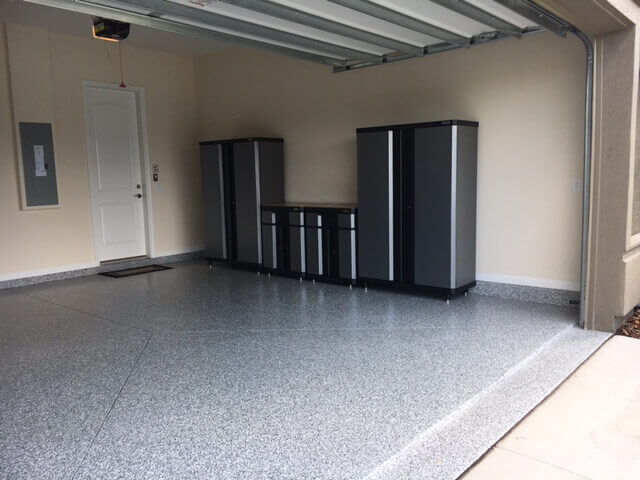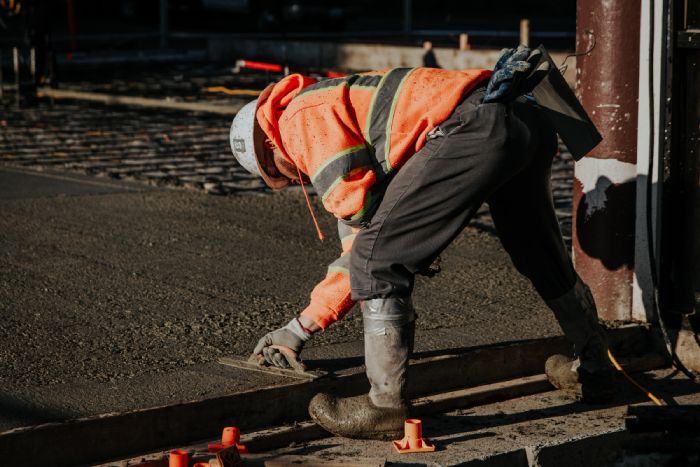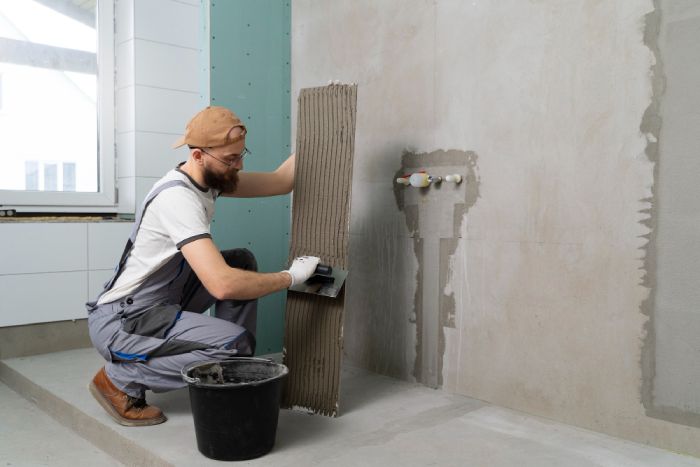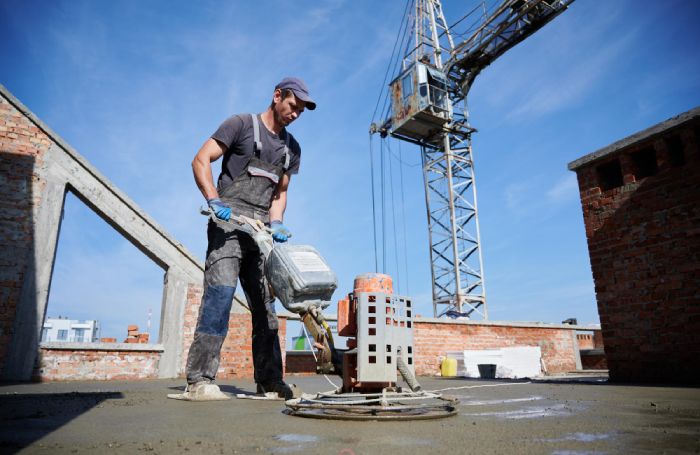Epoxy garage floorings are made up of layers of a durable, long-lasting covering known as epoxy. Epoxies are used to create gleaming, spotless, and long-lasting flooring.
It’s also used to protect the paint on the flooring from grease, oil, and other contaminants. However, epoxy coating is not suitable for all types of flooring. As a result, before you add epoxy garage flooring, you should first determine whether or not your concrete produces moisture. The epoxy’s ability to adhere is frequently harmed by flooring that produces moisture. As a result, it is unsuitable for epoxy coating.
Also, if your flooring has been sealed with concrete sealer, you should not apply an epoxy coating. If you have a new slab, however, wait at least a month for the flooring to be completely dry before applying the epoxy. If you have painted flooring, removing the old paint before installing any type of epoxy is the best option. You should also consider the temperature of the air in your garage. The air temperature should be between 60 and 90 degrees, with a minimum concrete temperature of 55 degrees F, for optimal epoxy curing.
The Success of Epoxy Garage Flooring
The success of your epoxy garage flooring project is also determined by your planning and preparation. Oil spot removal, floor cleaning and degreasing, floor etching with mild acid, and floor washing, vacuuming, and rinsing are all part of the pre-work. If your floor is free of cracks, you can apply the first layer of epoxy right away. If your floor contains cracks, however, you should patch the cracks first before applying the first layer of epoxy. The next day, the second coating of epoxy is placed.
Another important selection you’ll have to make is which type of epoxy to utilize. Epoxy floor coatings are strong resins that come in two different portions. Epoxy garage flooring comes in three varieties: 100 percent solids, solvent-based, and water-based. The first item on the list is almost entirely made of epoxy. It is devoid of solvent. As a result, it dries quickly and is tough to work with. This type of epoxy is best left to the professionals.
The solvent-based epoxy has a solid-to-liquid ratio of 40-60, or 60 percent solid. This type of epoxy is typically preferred by experts since it penetrates and adheres well. Solvent-based epoxies are also available in a variety of colors. Solvent-based epoxies, on the other hand, are too strong and may be harmful. When working with this type of epoxy garage flooring, it is suggested that you wear a well-fitting respirator. Also, make sure your garage is well-ventilated.
Water-based epoxies typically have 40-60 ratios, similar to solvent-based epoxies. This form of epoxy has the advantage of being non-hazardous and easily available. To boost the durability and life span of epoxies, apply two coats of solvent-based and water-based epoxies. The cost of all epoxies is determined by the amount of epoxy used in the mix.
Epoxy flooring is excellent for garage floors. It can withstand scraping, oils, grease, chemicals, and automobile tracks. So, give epoxy flooring a try and you’ll see how beneficial it is.






